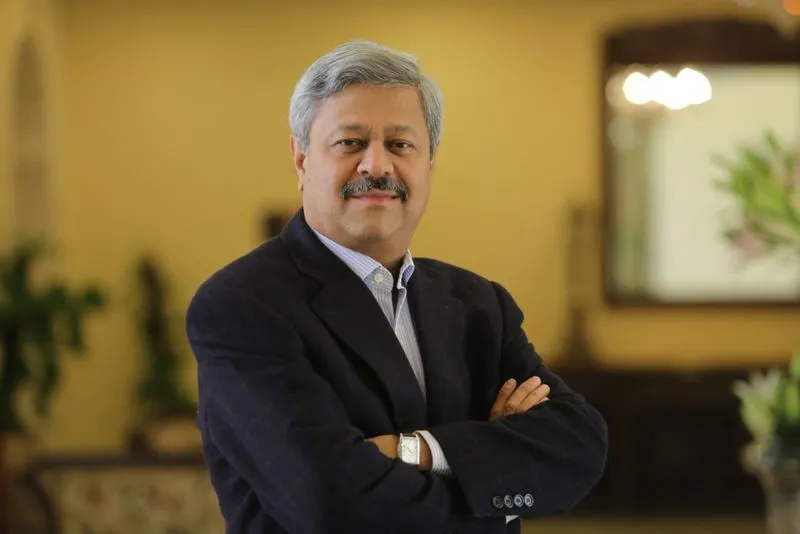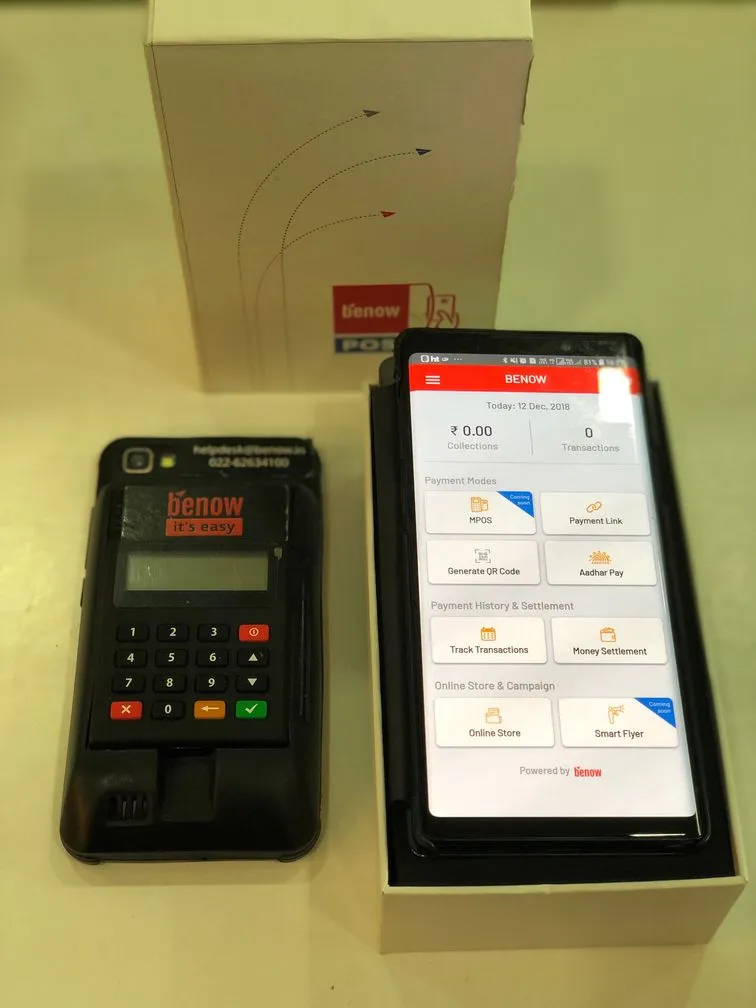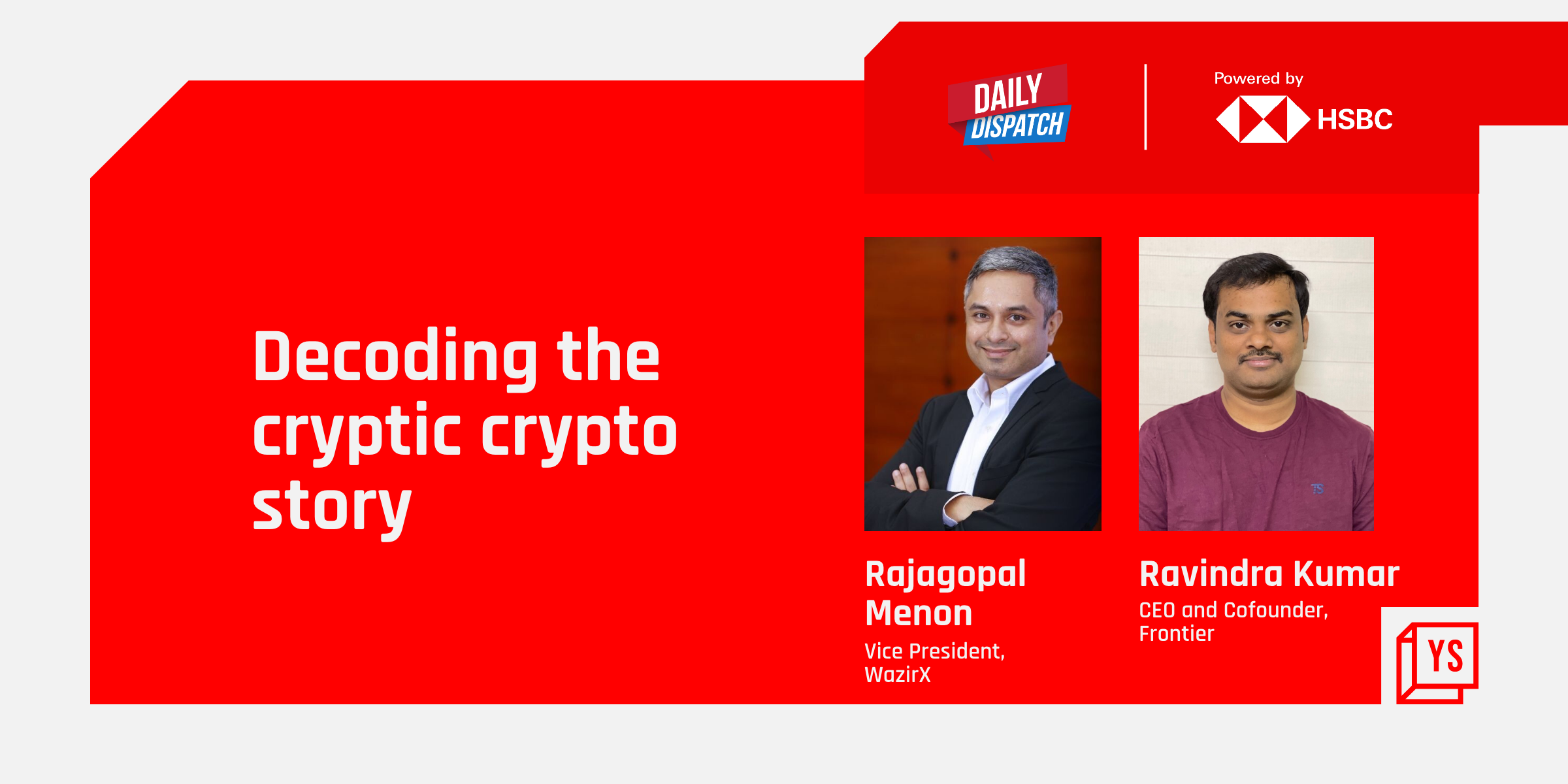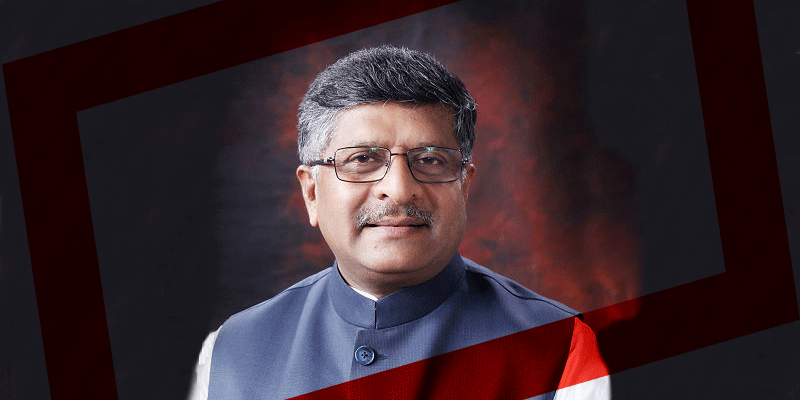Merchant payments startup Benow identifies point-of-sale card transactions as the next big growth driver
Benow, a two-year-old startup from Mumbai, looks to add 4 million PoS devices and onboard a million small merchants in the next four years. Here is how.
Benow started as a digital payments enabler for small offline merchants in March 2016. Its first pilot witnessed signups from 1,000 local merchants in Mumbai. The startup offered a platform that let merchants process BHIM and UPI payments without the paraphernalia associated with digital transactions.
The startup allowed merchants to simply generate dynamic QR codes, and customers could scan those codes on BHIM or their bank’s UPI apps to complete a transaction. It was a quick and hassle-free process, and the infrastructure cost on the merchant side was minimal too. In fact, merchants could operate the service even on their feature phones.
Despite the obvious benefits Benow offered, it was slow to gain ground. Reason - inertia. Plus, our cash-centric mindset.
Not until demonetisation in November 2016 did the platform gain any real acceptance at neighbourhood stores - Benow’s target customer. In an earlier interaction with YourStory, Founder-CEO Sudhakar Ram said demonetisation made people realise that cash may not always be available in the system. Hence, they started warming up to digital modes of payments.

About a year after demonetisation, in November 2017, Benow acquired Gurugram-based startup Finmo to expand its offline merchant network. “Finmo was a small startup doing something very similar to us,” Sudhakar tells YourStory. Finmo’s flagship product, DigiBharat, enabled peer-to-merchant (P2M) payments from over 60 apps, including BHIM, UPI, PhonePe, Chillr, Pockets by ICICI Bank, SBI Pay, and more.
Dial ‘A’ for Acceleration
In the past 11 months, Benow has grown rapidly. It currently counts 100,000 offline merchants on its platform and has expanded its geographical footprint to 10 cities besides Mumbai (the startup’s base). From metros like Delhi, Bengaluru, and Hyderabad to Tier II cities like Nashik, Nagpur, and Jaipur, Benow is reaching out to every kind of market.
Sudhakar says, “We have stepped up merchant acquisition, particularly in the last seven months. Close to 67,000 merchants came on board during this time. We have also ramped up our sales team from 30-40 people earlier to about 150 now. Because that’s what you need to scale up - feet on the street.”
Between 1,000 merchants in 2016 to 1 lakh merchants now, Benow says transactions on its platform have grown by 20-30 percent. Transaction size has increased too, with the startup processing $1 million worth of payments on a monthly basis.
Traction from electronics and mobile stores is significant. “That is our most successful category. More so because merchants have started enabling EMI orders,” Sudhakar says. “F&B outlets, pharmacies, and grocery stores are the other top segments,” he adds.
Ask him if shopkeepers in Nashik are any different from those in Mumbai, and Sudhakar observes, “Sometimes it is easier to sell in Tier II cities because awareness is low, competition is low, compared to a place like Mumbai or Hyderabad. The merchant acceptance rate is much higher in Nashik or Vizag.”
“Also, in Mumbai, ‘cashless’ means card transactions. The share of wallet payments is still quite low,” he adds.
According to RBI data, debit card transactions in India were up 76 percent at the end of October 2018. Even though e-wallets are growing, cards - more than cash - have emerged as their biggest hindrance, at least in big cities.
To overcome this, Benow has innovated.
What now at Benow?
It has built a PoS device that will allow merchants to also swipe cards. The product is priced at Rs 2,200 and will be announced “in the next 40 days”, Benow states. Besides swipe features, it will offer merchants additional functionalities like business intelligence, customer engagement tools, analysis, etc. Benow has also roped in YES Bank, Axis Bank, ICICI Bank, Kotak Mahindra, PayU, Razorpay, and others to process card transactions.

But, was a PoS device really required? Was UPI not a good enough growth-driver?
Sudhakar explains,
“UPI caught on in a big way for peer-to-peer (P2P) payments. But in P2M, its growth has not been as expected. So, we have added a device, and are also training merchants, providing them with more educational material such that they can get started on their own.”
Benow reckons PoS is the next big opportunity. Without disclosing current transaction numbers, Sudhakar says, “Once card swipe is added, it has the potential to increase our transactions by 10X.” The startup looks to add four million PoS devices and a million merchants across the country over the next four years. And to scale up at that pace, it requires funds.
“We’ve been bootstrapped so far, but are out in the market now,” Sudhakar says, adding, “We’re looking to raise about $5 million-$6 million.” The startup has already held talks with undisclosed VCs, and expects to close a round shortly.
Why PoS matters
There are close to 4-5 crore small and big offline merchants in India, as per industry estimates. Hence, the addressable market is massive, and there aren’t too many competitors, Sudhakar claims. “I believe it’s a winner-takes-all market. And the number of people who want to play this game is low.”
He adds,
“Merchants come to us for our simplicity and the cost advantages we offer. We want to empower small merchants with tools that any large ecommerce player would have.”
In the words of India’s original retail king Kishore Biyani, the neighbourhood kirana shop is “recession-proof”. Hence, the world’s a stage for Benow!











